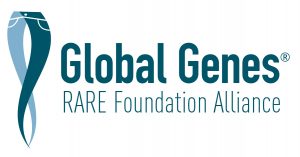Two of the world’s leading researchers into developmental ocular conditions have joined the Axenfeld-Rieger Foundation’s scientific advisory board.
Elena Semina, PhD and Linda Reis, MS, CGC from the Medical College of Wisconsin have been actively involved in research into the genetic causes of Axenfeld-Rieger Syndrome (ARS) and related conditions; Dr. Semina’s early work identified the genetic cause of one type of Axenfeld-Rieger Syndrome. Their research focuses on understanding the molecular pathways involved in the condition, exploring the range of clinical features in affected individuals, and seeking new genetic causes for unexplained cases.
Linda Reis said: “Dr. Semina and I are happy to join the ARS scientific advisory board. We are looking forward to turning our shared goals into a reality.”
Axenfeld-Rieger Syndrome is an autosomal dominant disease which affects an estimated 1 in 200,000 people. Based on published data, the genetic mutation which causes the disease is known in approximately 40% of cases, typically disruption of the FOXC1 or PITX2 genes.
Deletions/mutations of these genes cause abnormalities in the anterior segment of the eye. People with PITX2 disruption usually also have dental and umbilical anomalies; pituitary anomalies, Meckel’s diverticulum, or anal anomalies are also reported in some cases. People with FOXC1 disruption may have isolated ocular anomalies or may also have a range of heart, hearing, brain, or hip anomalies.
About 50% of affected individuals develop glaucoma in late childhood or adolescence, although it can also develop in infancy. Glaucoma is a serious condition that can cause vision loss or blindness due to increased pressure inside the eye.
Rebecca Sloan, founder of the Axenfeld-Rieger Foundation, said: “Dr. Semina and Linda Reis bring extensive knowledge into the genetic causes of this rare disease. They will play an integral role in our quest to develop a cure for the glaucoma caused by Axenfeld-Rieger Syndrome, as well as in identifying effective treatments for associated symptoms caused by the condition”.
The Axenfeld-Rieger Foundation is focused on advancing scientific research into the condition and improving the lives of patients.

